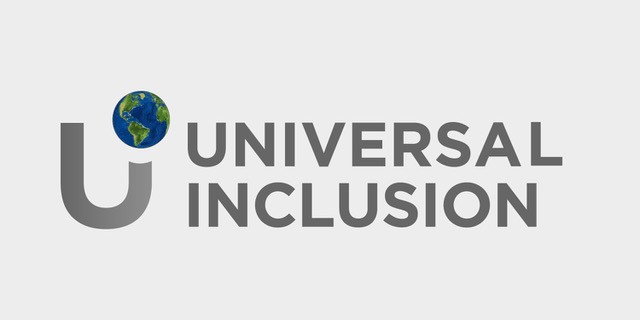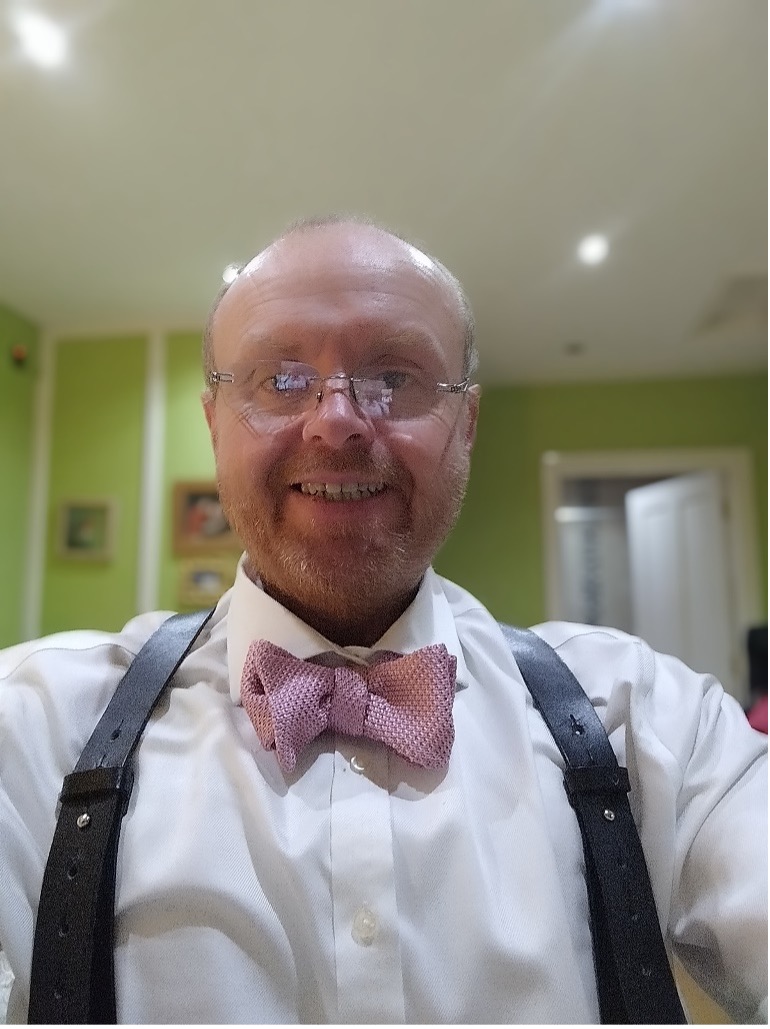"Always project an air of positive confidence, sometimes the narrative around disability is negative. Don’t fall into that trap as it is a sure way to turn people off."
Michael Holden
Director, AccessoLoo
CEO Jacquline Winstanely caught up with Michael Holden to find out what makes her an inspiring and Inclusive Entrepreneur. Michael is a member of the Inclusive Entrepreneur community
Michael, you are An Inclusive Entrepreneur, a member of our Inclusive Entrepreneurship Community. It would really help me if you could set the scene so our visitors understand not only the concept but the person behind your brand.
"I worked in the construction sector prior to acquiring my disability. I found that as I transitioned to a wheelchair user, I was being overlooked for inclusion in projects that I would have not only been included on, but often led.
Lived experience as a wheelchair user, accustomed me to services that were lacking in the community for disabled people, especially wheelchair users. I decided to place my engineering background and skills to use in a way that would remain useful, exciting and continue to produce something that was going to make a difference.
It was clear to me that the only way to proceed was to develop a career pathway for myself as my working colleagues had lost confidence in my abilities due to disability. I had absolute faith in what I could achieve and the only way forward was self-belief and personal ambition not to allow my knowledge and experience to be shelved.
I felt passionately from talking to other disabled people that there were qualities out there lying dormant, because of a lack of opportunity and I wanted to tap into that knowledge pool and create an environment of inclusion. Basing my ethos around abilities irrespective of perceived disability."
How did you embark on the Entrepreneurial journey?
"I decided to go back to university to formalise my business and entrepreneurial knowledge acquiring a business degree from the University of Ulster, supported by a Post Graduate Degree in Project Management from Queen’s University Belfast. Taking advantage of student entrepreneurial programmes and competitions I was able to garner success for my ideas. I was a finalist in a local entrepreneurial spark competition and awarded mentorship for a springboard initiative. I also won the student entrepreneur of the year at Queen’s University and became a finalist of the Pitch at the Palace competition.
I also completed an entrepreneurial programme in Boston, USA at Boston College as well as a public leadership credential at Harvard.
I then approached Invest Northern Ireland with a business plan and proceeded to develop a manufacturing facility to produce a prototype of the product which I had designed."
Did you feel that this was tougher for you than for people without disabilities?
"Yes, whenever I went to business networking events or conferences, they were always tailored to people who did not have a disability and access was not what is should have been. I also found the same prejudicial stereotype when trying to engage with people about my idea. My wheelchair was a barrier to people taking me seriously.
This was also the case with financial institutions who saw my disability first and almost dismissed by business plan before giving in any serious consideration."
Please outline the how, where and what about your business and the value it brings as an Inclusive Enterprise.
"My business is based upon the lived experience of disabled people and producing products and services that are lacking in the social environment for our community. I also decided to expand upon my philosophy of making use of the talent pool of disabled people. The business in now a prime employer of disabled people offering work paid above the national average in Northern Ireland – with support from the Access to Work scheme, I have built a workforce of primarily disabled people supported by non-disabled staff.
As well as producing goods for use, we also promote the inclusion of disabled people in the cultural activities of general community as well as independent living. Highlighting the provision on UNCRPD in these areas.
Training and upskilling of staff through further and higher education programmes in collaboration with local education establishments, to further the skill set of all employees, disabled or otherwise."
Why this particular business and brand?
"Much of my life encountered exclusion because of a lack of general awareness to provide the correct facilities at cultural and pop-up events, particularly in an outdoor environment. My family would also encounter these difficulties as they were in turn excluded as a consequence of my disability. My business aimed to tackle this ignorance and provide some of those lacking services. This has led to a general increase of disabled people being able to attend those cultural events and has seen a normalisation in the inclusion of disabled people."
What successes have you had along the way that you are particularly proud of?
"I was awarded and MBE for my services to the disabled community in 2017, this was awarded by His Royal Highness The Duke of Cambridge; now The Price of Wales.
The business was also recognised by the Barrier Free project at the United Nations in Vienna, awarded for innovation in breaking down the barriers to disabled inclusion.
Getting through to the finals of Pitch at the Palace was also a great achievement which helped springboard the idea of actively including disabled people in planning for statutory bodies here in Northern Ireland.
I also won a scholarship with UNLTD, to assist with the growth of the business and became a Scholar of ACUMEN which is a worldwide leadership programme for social entrepreneurs."
Mention some of the obstacles you had to face and overcome to get to where you are today.
"By far the most difficult obstacle was persuading banking institutions to have faith in me and my ideas. Without the lived experience of a disability, they found it difficult to empathise with the need for my products. A lack of understanding in the market opportunities and potential for growth and development was at the core of that ignorance.
In the end, the only way to secure funding was to offer personal collateral of my home to be able to progress and this thankfully has paid off. We are now in a debt free situation with a positive liquid finance balance to aid our own growth and development.
I have to say that without this existing collateral, I fear my dream would have developed at a much slower pace if not at all. This will continue to be a barrier for those who are not able to even get to a stage of being able to offer something up in return for finance."
What are the economic benefits of being an entrepreneur?
"I am able to lead and explore vision for the business, enjoying an active research and development structure which in turn leads to economically productive ideas. Giving employment to those who have found it difficult to gain employment elsewhere. There have been and still remain risks as we encounter and deal with wider economic outcomes of the country nationally and this is something that I always remain vigilant about.
I continue to work hard and input more than I expect from my own staff, but do enjoy the control over my own diary, taking family time as and when I require it, rather than seeking permission from others."
What assistance have you had along the way, and how has that helped you get where you are today?
"Invest NI have been a tremendous help, with my client executive showing an interest from the very beginning. She of course was bound by Invest NI policies and I had considerable leg work to do to be able to provide a history of ‘need’. However, once I had been able to show a growth in sales, particularly cross border sales with Ireland and GB, Invest NI have been more than willing to assist my development ever since."
As an entrepreneur, what would you advise other disabled people who are also considering embarking on a similar journey?
"Make sure that you have a plan for your idea. Getting help writing a professional business plan is key and always be realistic and stick to the plan as best as you are able. Consider going back to education to formalise your learning if needed or even develop your knowledge as the extracurricular programmes that are offered by colleges and universities are an invaluable way to further your idea. Do not be afraid to seek help or advice from others that have walked the path before you, reach out and network with those people if possible.
Finally, I would say, always project an air of positive confidence, sometimes the narrative around disability is negative. Don’t fall into that trap as it is a sure way to turn people off."
If you would like to contact Michaek, you can email him on This email address is being protected from spambots. You need JavaScript enabled to view it. You can also follow him on social media:
LinkedIn: https://www.linkedin.com/in/michael-holden-mbe-2669b32b/
Facebook: https://www.facebook.com/AccessoLoo
Facebook: https://www.facebook.com/michael.holden.3363
Instagram: @accessoloo
Twitter: @accessoloo @meehawh


